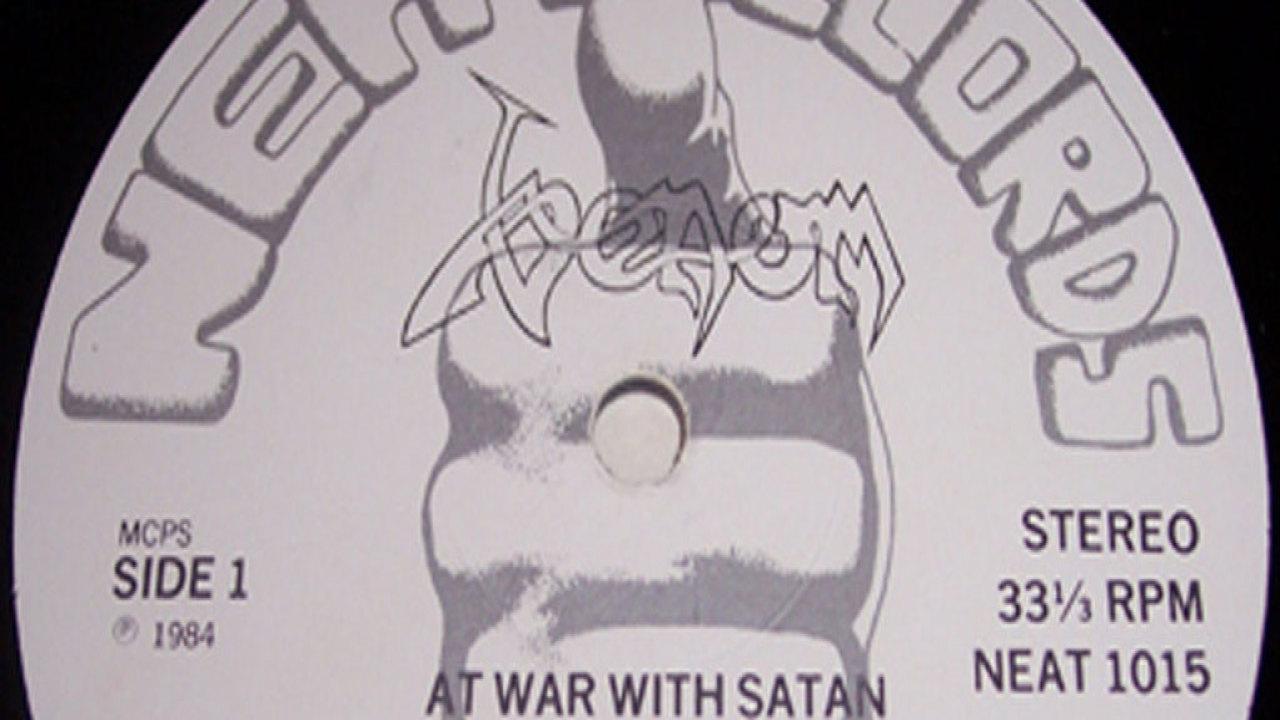Welcome Back: Venom
On April 16, 1984 Venom released the album At War With Satan. In 2012, Cronos gave his thoughts on the band's place in metal to Classic Rock in issue 169

Select the newsletters you’d like to receive. Then, add your email to sign up.
You are now subscribed
Your newsletter sign-up was successful
Want to add more newsletters?

Every Friday
Louder
Louder’s weekly newsletter is jam-packed with the team’s personal highlights from the last seven days, including features, breaking news, reviews and tons of juicy exclusives from the world of alternative music.

Every Friday
Classic Rock
The Classic Rock newsletter is an essential read for the discerning rock fan. Every week we bring you the news, reviews and the very best features and interviews from our extensive archive. Written by rock fans for rock fans.

Every Friday
Metal Hammer
For the last four decades Metal Hammer has been the world’s greatest metal magazine. Created by metalheads for metalheads, ‘Hammer takes you behind the scenes, closer to the action, and nearer to the bands that you love the most.

Every Friday
Prog
The Prog newsletter brings you the very best of Prog Magazine and our website, every Friday. We'll deliver you the very latest news from the Prog universe, informative features and archive material from Prog’s impressive vault.
These days seen as an important and influential metal band, Venom have come a long way from their beginnings as an underground band in Newcastle at the end of the 1970s. Among the pioneers of thrash, they can also lay reasonable claim to have founded the whole black metal movement.
They’ve released 12 studio albums, the most notable being the first two – Welcome To Hell and Black Metal – recorded by their most famous line-up, with bassist/ vocalist Cronos, guitarist Mantas and drummer Abaddon. Cronos is still leading from the front, joined on 2011 album Fallen Angels by guitarist La Rage and drummer Dante, and says they’re fired up to prove that the Venom legacy is as crucial now as it’s ever been.
Have Venom gone back to basics?
Definitely. I’ve spent years looking for two guys who don’t care about money or being rock stars, and I’ve finally got them. They are so into the music that for me it’s like going back to the way things were when this band first started, when the passion and commitment was all that mattered, not how much money we were getting for everything.
Venom’s influence is on a par with the likes of Metallica and Slayer. Does it frustrate you that those bands have had so much more success?
You know what, we’ve retained our integrity whereas those bands haven’t. Look at Metallica. They sound so lame these days. They’re old men who should have given up a long time ago. Lars Ulrich seems to be more bothered about buying a $6 million painting than making great music. The only one of those American metal stars to retain a shred of credibility is Dave Mustaine. At least he still cares.
Will there ever be a reunion of the Cronos/Mantas/Abaddon line-up?
Sign up below to get the latest from Classic Rock, plus exclusive special offers, direct to your inbox!
No chance. When we did it in 1995 I realised that I didn’t know those guys any more. They’d changed so much that I couldn’t even relate to them at all. It was all about paying for houses and sending their kids to school. I’m in the same boat, obviously, but for me Venom is all about the music. For them it was a way of making money. So what can they bring to the band now? Nothing. It’s over, and no amount of money can alter that. If we ever do reunite, then fans should come up and call me a liar.
Do you wish you’d done something like the Anvil movie? I
wouldn’t ever have wanted the sort of mainstream attention they got through it. I would love to do a proper documentary on Venom, but one done with a sensible budget and that wasn’t a joke. I’d never want to look like a buffoon on screen.
Are Venom as an active band undermined by the constant reissues?
Not at all. Having these albums back out again has helped to maintain people’s interest in our history. I think we’re lucky to have them re-released by people who care, and I am always consulted.
Will your expertise in 3D computer technology ever get used in a future Venom project?
We were gonna do a 3D video last year. It’s still in the works, but the director got seriously ill. There’s so much I still want to do with Venom. Some of it’s on the technology side, and I am always using this expertise to ensure everything we put out looks first class.
Malcolm Dome had an illustrious and celebrated career which stretched back to working for Record Mirror magazine in the late 70s and Metal Fury in the early 80s before joining Kerrang! at its launch in 1981. His first book, Encyclopedia Metallica, published in 1981, may have been the inspiration for the name of a certain band formed that same year. Dome is also credited with inventing the term "thrash metal" while writing about the Anthrax song Metal Thrashing Mad in 1984. With the launch of Classic Rock magazine in 1998 he became involved with that title, sister magazine Metal Hammer, and was a contributor to Prog magazine since its inception in 2009. He died in 2021.

